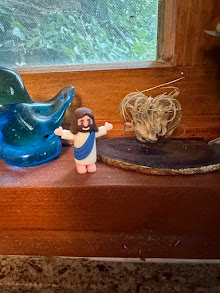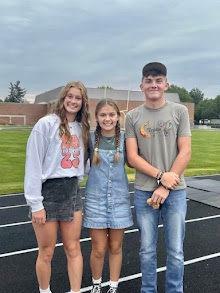"I’ve had the first one of the year…..more to come. A customer wants to know which ….uhhh…let me copy and paste this because I can’t do it justice.
Please advise."
"I need to know which plants that you sell are genetically modified - what I mean by genetically modified are plants that undergo unnatural genetic engineering including shooting genes into chromosomes. I am fine with plants that have been selectively bred. Selective breeding is a natural process of natural selection. I would prefer native but will accepts selective breeding options. If any of these flowering plants are native and not altered in any way, I need to know that for sure. I would like to place a sizable order but your plants are not marketed to indicate which ones may be unnaturally genetically modified. I do not want to kill bees and other pollinators by planting unsafe plants for them. I am also selective about considering plants that produce vegetables for our consumption. I only plant non genetically modified (no lab created seeds) food plants for my family's consumption and only use organic soil. I do not use miracle grow or other harmful products in my food gardens. If your food plants are not modified, you need to indicate it for sure. I need to know, for sure, that the flowering ornamental plants I consider from your company will not be harmful in any way to our ecosystem."
Sigh. Really, where does one start. With the confused, incomprehensible, and value laden differentiation between 'natural' and whatever it's antithesis is considered to be? (Unsafe? Harmful? Unselective, perhaps? Foreign, heaven forfend.....) How can we possibly cut a Gordian knot that defines "selective"breeding as a "natural" process of "natural" selection!!? Selection involves a choice...by someone or something. In this case, the someone is a human being. In the broadest sense, yes, a human being is certainly something "natural", but using that interpretation makes all genetic alteration natural and I don't think that's what the writer intended to imply at all. Choosing a desirable characteristic is certainly "selection", but there is nothing "natural", aka accidental or arbitrary, about it.
And let's get one thing perfectly straight; there isn't going to be a genetically modified seed or plant in any of our greenhouses this year. I wish there were! I wish there was a way to prevent fungus from spotting zinnias, botrytis from browning geraniums, and put a stop to the downy mildew plague that has devastated impatiens the last few years! If one buys a tomato from us, it may be a brand new hybrid with lots of letters after its name signifying its resistance to various nasty fungi...or one can choose something tried and true like Rutgers or Big Boy....but we will be just as happy to sell you a heritage tomato variety like Cherokee or German Johnson. Choice is good, and one need only leaf through a catalog like Totally Tomatoes to realize the past, present, and future of home garden production offers a cornucopia of decisions.
While I'm on my garden soapbox, allow me to point out that it would be a really tough job to find a totally inorganic soil. Even an abused garden plot will contain a fair amount of organic matter in the form of stems, leaves, roots, mulch and other leftovers in various stages of decomposition. I guess my grandkids' sandbox might be considered an inorganic garden spot...but not after they've pounded a half dozen gourds into pulp and planted the seeds.....
Ecosystem is such a sterile technical term. A garden can be many things...organized or unkempt, monotone or multi-hued, edible or ornamental, frivolous or practical. Forgive me if I believe planting flowers and vegetables, whether for consumption or pleasure, is a net gain for the earth and all the creatures thereof. We grow plants for a living...and for love. That's the kind of rule I can live with....

























Well said!
ReplyDeleteHave a lovely weekend, Terri